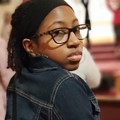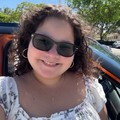Jessica's Journey Brain Tumor Survivor Scholarship
Brain tumors are one of the deadliest forms of childhood cancer and can be a difficult diagnosis to overcome.
Survivors have often gone through a lot of pain, worry, and stress and often come out the other side full of perseverance and resilience. These qualities can allow cancer survivors to achieve greatness in their lives, giving them great motivation when it comes to pursuing educational or professional goals.
This scholarship seeks to honor Jessica, a brain tumor survivor, by supporting other people who have made it through cancer.
Any high school, undergraduate, or graduate student who is a pediatric brain tumor survivor may apply for this scholarship opportunity.
To apply, tell us about your personal experience with a brain tumor diagnosis, how it's impacted you, a pivotal moment that defines you as a survivor and about your future goals. You may apply via written response or via video.
To apply, please tell us about your personal experience with a brain tumor diagnosis, including your age at the time of diagnosis, specific tumor type, and how it has impacted your life. Share a pivotal moment in your journey that defines you as a survivor. Also, what are your educational/career goals, and how will this scholarship help you achieve them?
You may apply via written response or video. Your written response should be 400-600 words and the video should be 3-5 minutes. If you apply via video, please type in "Submitted via video response".
Winners and Finalists
May 2025









Winning Application


Explore All Kinds of Scholarships for All Kinds of Students
FAQ
The application deadline is Apr 10, 2026. Winners will be announced on May 11, 2026.
Your privacy is a top priority on the Bold.org platform, and you can find our privacy policy in full here. You may opt out of communications from Bold.org at any time, and unless we’ve first notified you and gotten your consent, you’ll never receive communication from any third parties related to personal information you give us.
Award amounts per winner are designated by the donor. Check the award amount for a detailed breakdown.
The winner will be publicly announced on May 11, 2026. Prior to the announcement date, we may contact finalists with additional questions about their application. We will work with donors to review all applications according to the scholarship criteria. Winners will be chosen based on the merit of their application.
Award checks will be sent to the financial aid office of the winner's academic institution or future academic institution in their name to be applied to their tuition, and in the name of their institution (depending on the school's requirements). If the award is for a qualified educational non-tuition expense, we will work with the winner directly to distribute the award and make sure it goes towards qualified expenses.
Before we award the scholarship, the winner will be required to confirm their academic enrollment status. Depending on the circumstances, verification of Student ID and/or their most recent transcript will be required.
If you have any questions about this scholarship or the Bold.org platform, just email contact@bold.org and we’ll get back to you as quickly as we can.
Yes. The terms and conditions for this scholarship can be found here.